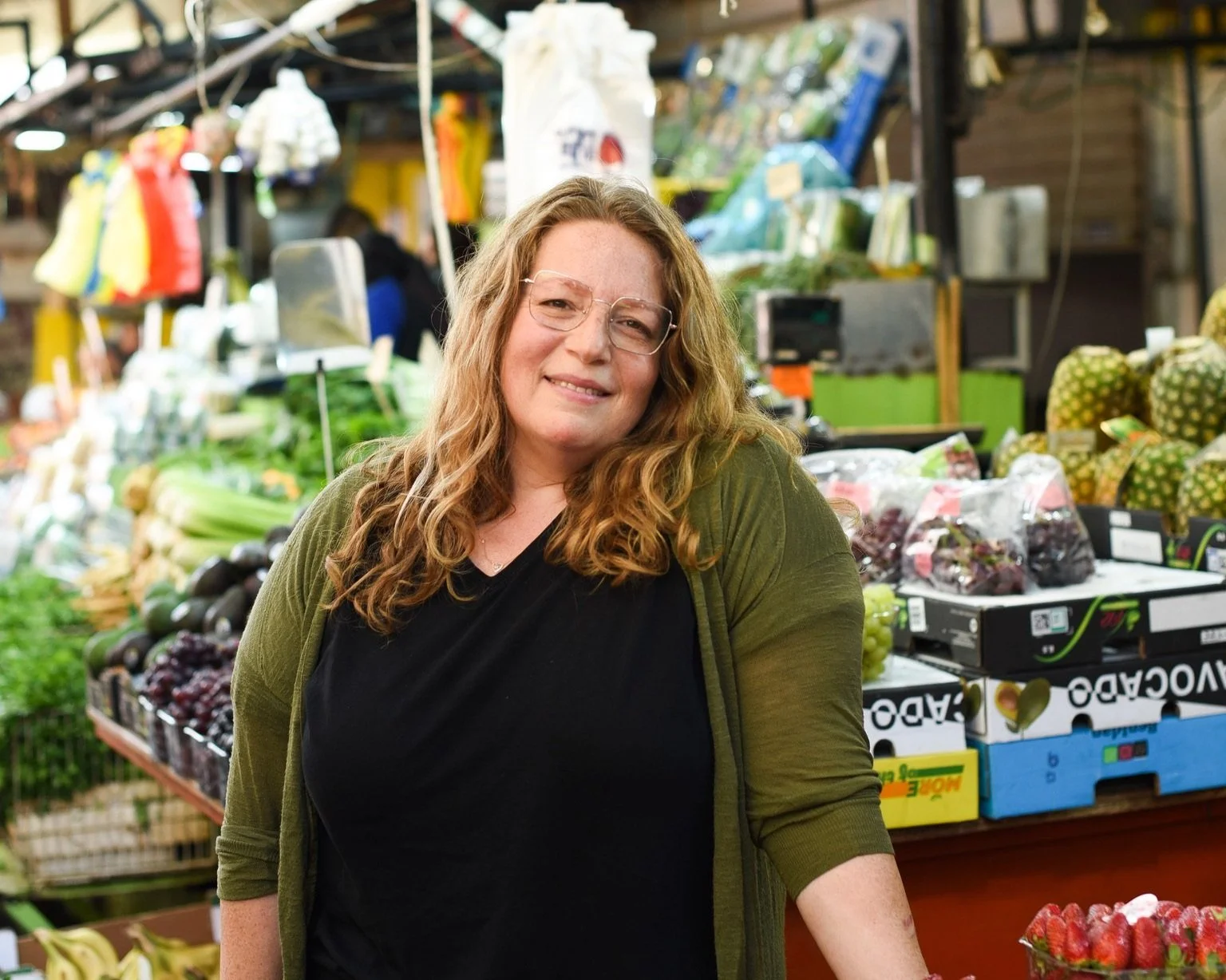Interview with Adeena Sussman
Interview with Adeena Sussman
A renowned culinary expert and author.
"My mom. She was a great cook and a super talented entertainer. She would talk us through recipes and have us help her get things ready."
Adeena Sussman, a renowned culinary expert and author, recently provided the GCI team with an exclusive interview. With a passion for food that was nurtured from a young age by her talented mother, Adeena embarked on a remarkable culinary journey that has taken her from the heart of New York to the vibrant streets of Tel Aviv. Her story is one of inspiration, cultural fusion, and a deep appreciation for the rich tapestry of Israeli cuisine. As the author of "Sababa: Fresh, Sunny Flavors from My Israeli Kitchen" and a co-author of numerous best-selling cookbooks, Adeena's culinary expertise knows no bounds. Today, we delve into her experiences, insights, and her involvement with the Galilee Culinary Institute, as well as uncover some fun culinary trivia. Join us as we explore the world of food and cooking through Adeena Sussman's remarkable journey.
1. What initially drew you to the world of food and cooking, and how did you get started on your culinary journey?
My mom. She was a great cook and a super-talented entertainer. She would talk us through recipes and have us help her get things ready. She really brought us into the kitchen. She made very simple, elemental food that always hit the spot. We were always around, absorbing and learning. In university, while my love for food was strong, I went in a different direction and studied political communications and religion. After I graduated, I moved to Israel to work in television. I was all along interested in food and cooked often, especially for Shabbat. Then, in my mid-twenties, when I moved back to New York, food media was starting to become a real enterprise, and I was reading cookbooks like novels. I did a bit of freelance food writing, and then, eventually, I got a job at Gourmet magazine as a copywriter in the marketing department. I got to travel, meet a ton of chefs, and do a lot of writing. Eventually, I left and went to Culinary School at the Institute for Culinary Education. I’ve been freelancing ever since and working on my own — and I started co-authoring cookbooks. I have done everything from magazine and newspaper writing, recipe development, food styling, culinary instruction, and more!
2. Your cookbook, "Sababa: Fresh, Sunny Flavors from My Israeli Kitchen," is a beautiful collection of recipes inspired by Israeli cuisine. What inspired you to write this cookbook, and what advice would you offer those looking to incorporate their cultural identity into their cooking?
The bustling Tel Aviv Shuk Hacarmel market, where I start each day finding fresh ingredients was the inspiration! Sababa is a celebration of Israeli cooking and its intoxicating, bold flavors, showcasing my personal take on the Israeli kitchen and its diverse, delicious, and vibrant cultures. Before marrying my husband, Jay, and officially moving to Tel Aviv, I was already living in Israel for a good part of the time. I had wanted to write an Israeli cookbook but was worried about doing it from the point of view of someone who wasn't living in Israel. Once I got going, I made it a personal story, feeling close to what I knew and what resonated with me about Israeli cuisine. The cooking that I do in Israel was a big part of my absorption into the country. I still have an American cooking style and perspective, and in the book, I figured out a way to naturally combine it with the Israeli cooking perspective. Modern Israeli chefs feel confident enough to combine influences, and they aren’t afraid to add their own unique touches. My advice is to incorporate your tastes and memories of home into your cooking, while also being present and explorative to the people, stories, and foods in the place where you are living.
3. You've been involved in the Galilee Culinary Institute, which aims to preserve traditional cooking techniques and ingredients while promoting innovation in Israeli cuisine. Can you share with us how this initiative will impact the culinary scene in Israel and what you hope it achieves in the future?
It is really a mix of many cultures that have come together and that the ingredient influences are multicultural. Modern Israeli cuisine is a combination of Global Jewish (Ashkenazi, Sephardi, Mizrahi, etc.), Arab, Ethiopian, Christian, and all the ethnic groups that contribute to the culture. The use and influence of local ingredients. In my daily cooking, I use about a gallon of local olive oil a week–and a similar amount of tahini–and I am obsessed with local feta cheeses like Ha’Meiri, which has been made by the same family in Z’fat (Safed) for more than 150 years.
4. The Galilee Culinary Institute strongly emphasizes a farm-to-table and experiential approach to culinary education. How do you think this hands-on approach to food and agriculture can benefit students at the Institute, and what unique skills and knowledge can they gain from this learning experience?
Fresh produce is an ideal and a value; you don’t cook out of season here. They are religious about it. We are blessed with an abundance of fresh produce and the opportunity to learn where it is being grown and with opportunities to visit the farm. Though the seasonal “movement” was codified first in the United States, Israelis have always lived it. No limes, mangoes, avocadoes, and pomegranates whenever you want them. More daily shopping for produce, simpler meals with more of a focus on chopping and prepping raw ingredients, because they’re so damned good!
5. What’s a fun culinary fact about you?
Back in 2013, I was featured in the interactive music video for Bob Dylan’s 1965 hit “Like A Rolling Stone.” Let me tell you, lip-syncing while making a decadent dessert is harder than it looks!

